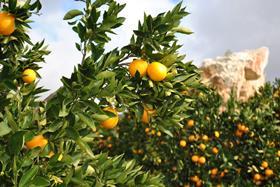
In South Africa, pressure as a result of a big crop combined with the Covid-19 pandemic has brought out the resilient side of the country's citrus industry.
Greater use of conventional reefer vessels and rail freight has helped the industry to ship record volumes of fruit at this stage of the season, despite the port disruptions endured as a result of the coronavirus outbreak.
After 20 years of containers dominating as the shipping mode for fruit from South Africa, conventional reefers have returned to make an impact in a year when value chains are challenged.
Port congestion as a result of poor infrastructure and inefficiencies has for some years been a major problem for growers and exporters.
Sheer hard work has resulted in greater use of rail transport this year – particularly at the port of Durban. This in turn has had a significant effect on the smooth movement of fruit through the port.
At the same time, intense involvement with the terminals at Eastern Cape ports has resulted in great improvements in efficiencies.
Growers and exporters in the Western Cape have, at great cost, moved some of their fruit by road to the Eastern Cape ports to be able to meet specific shipping schedules.
In addition to this the use of conventional reefers has been extended to shipments to the UK, Europe and some other countries in addition to those used for special markets such as the US, China and Japan.
Contrary to container line concerns that this policy would hurt their volumes, that has not been the case.
“As it is we have a big crop and we are concerned about sufficient container space being available to accommodate us,' said Mitchell Brooke of the Citrus Growers Association. 'We certainly need a combination of the two modes of shipping, not only this season with its unique challenges, but also in future.”
Brooke said that this year the various conventional reefer programmes had been working extremely well and had not been subjected to the delays experienced in some container terminals, particularly Cape Town.
At the end of week 27 the citrus industry is already running well ahead of last year’s shipping programme, with some 23 per cent more fruit having been exported, while some 19 per cent more citrus had been packed on 2019, or 50 per cent of the expected total export volume.
This is the result of an early season, as well as the intention of growers and exporters to get their fruit harvested and shipped as soon as possible.
While the increase in COVID infections, particularly in the northern areas of the country, are certainly a cause for concern for the completion of the rest of the citrus and topfruit seasons, industry leaders have noted that their resilience has not always received credit.
“In citrus we are dealing with a record crop and despite the additional problems we have this year it shows just how united we are and our commitment and resilience to deal with these matters. We have so far shipped a record number of containers,” said one leading grower.






No comments yet